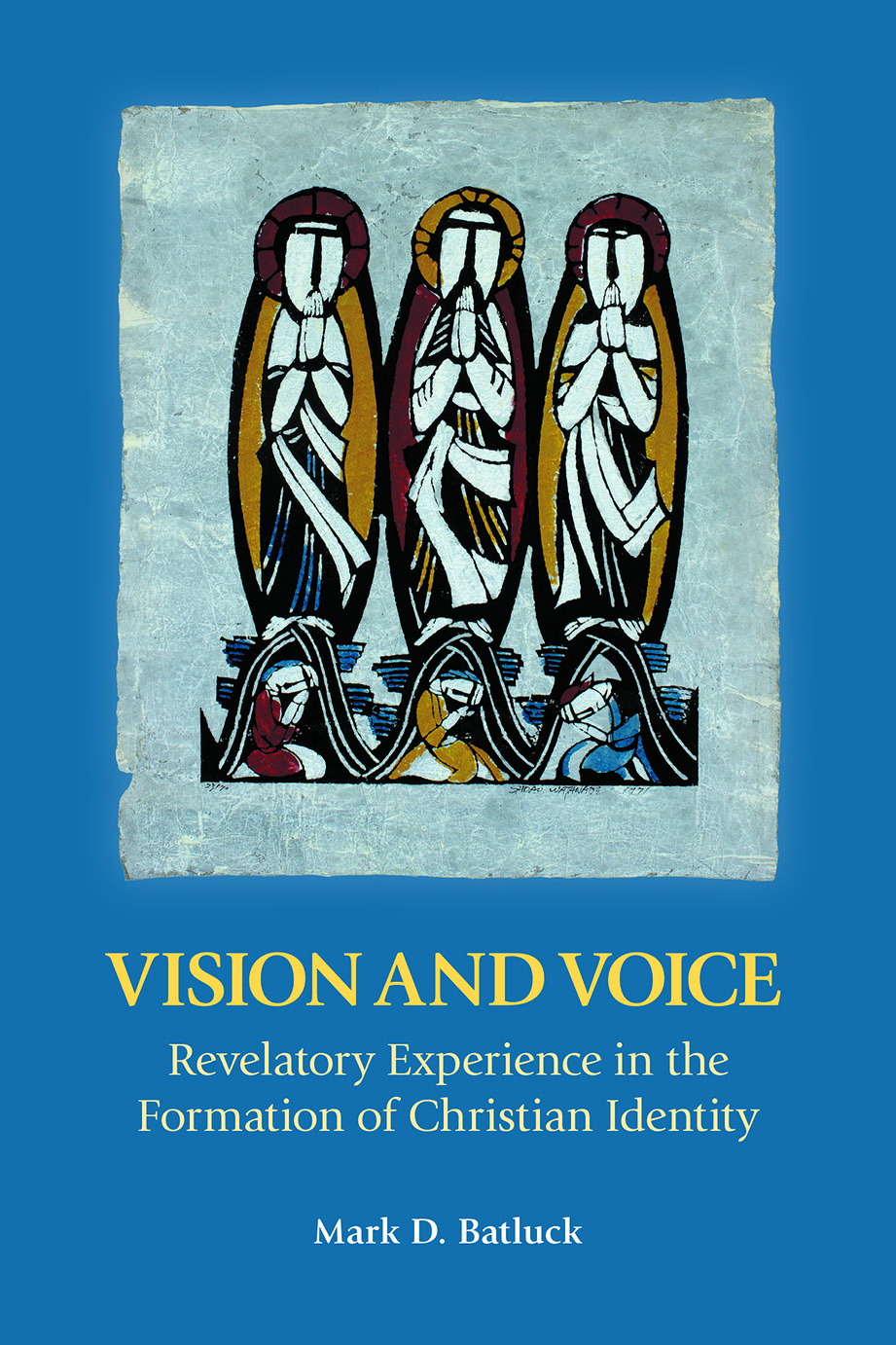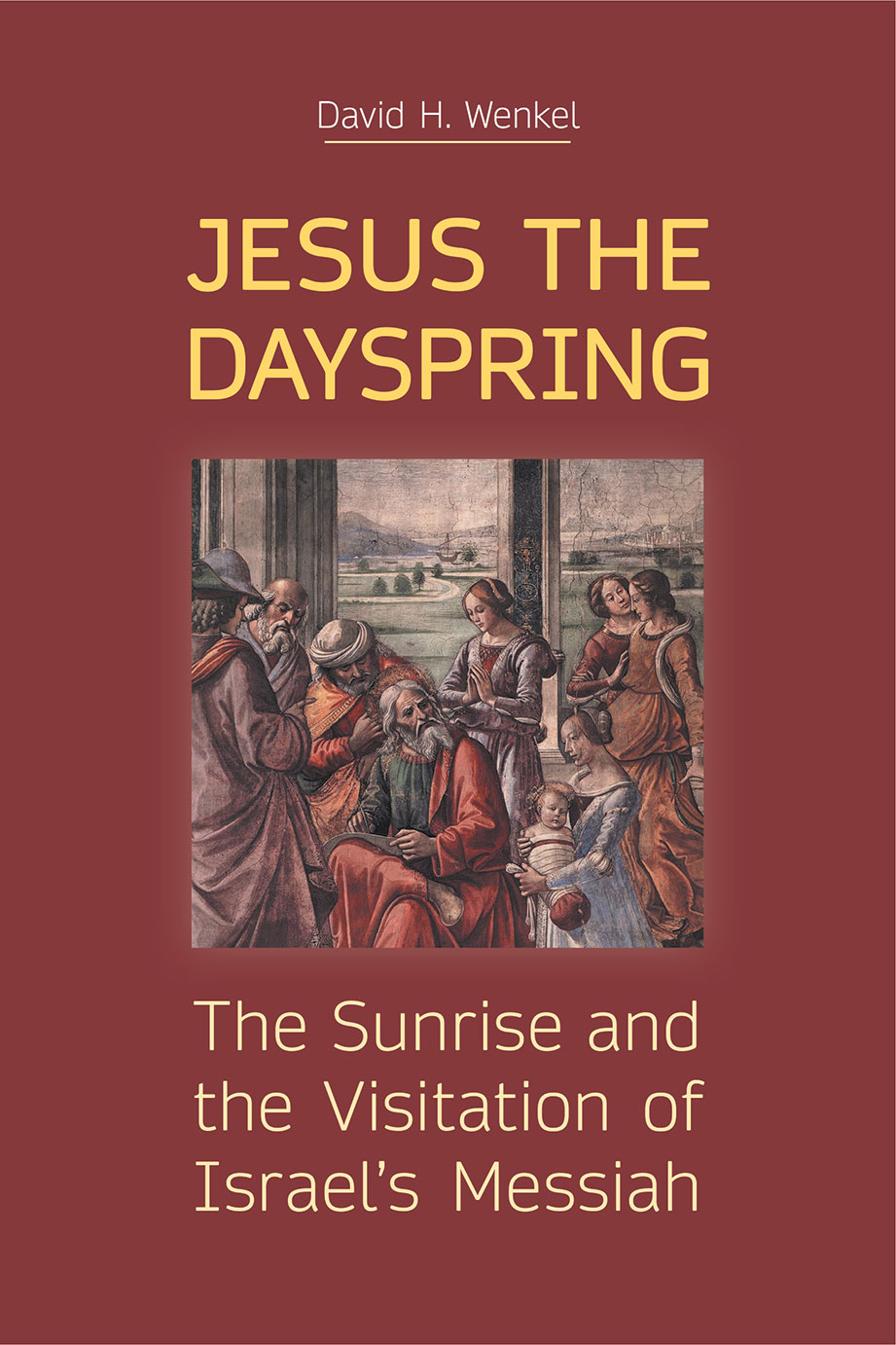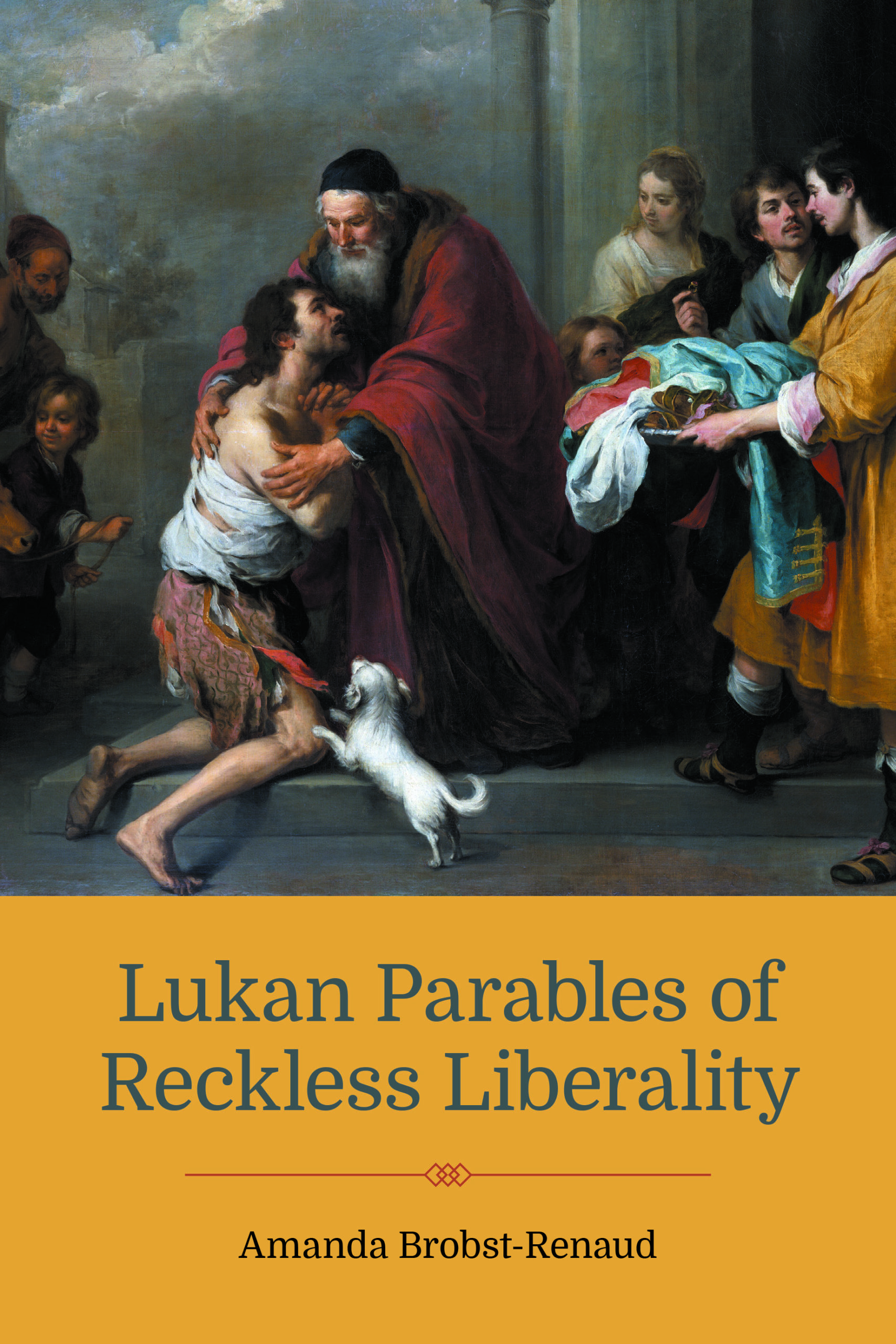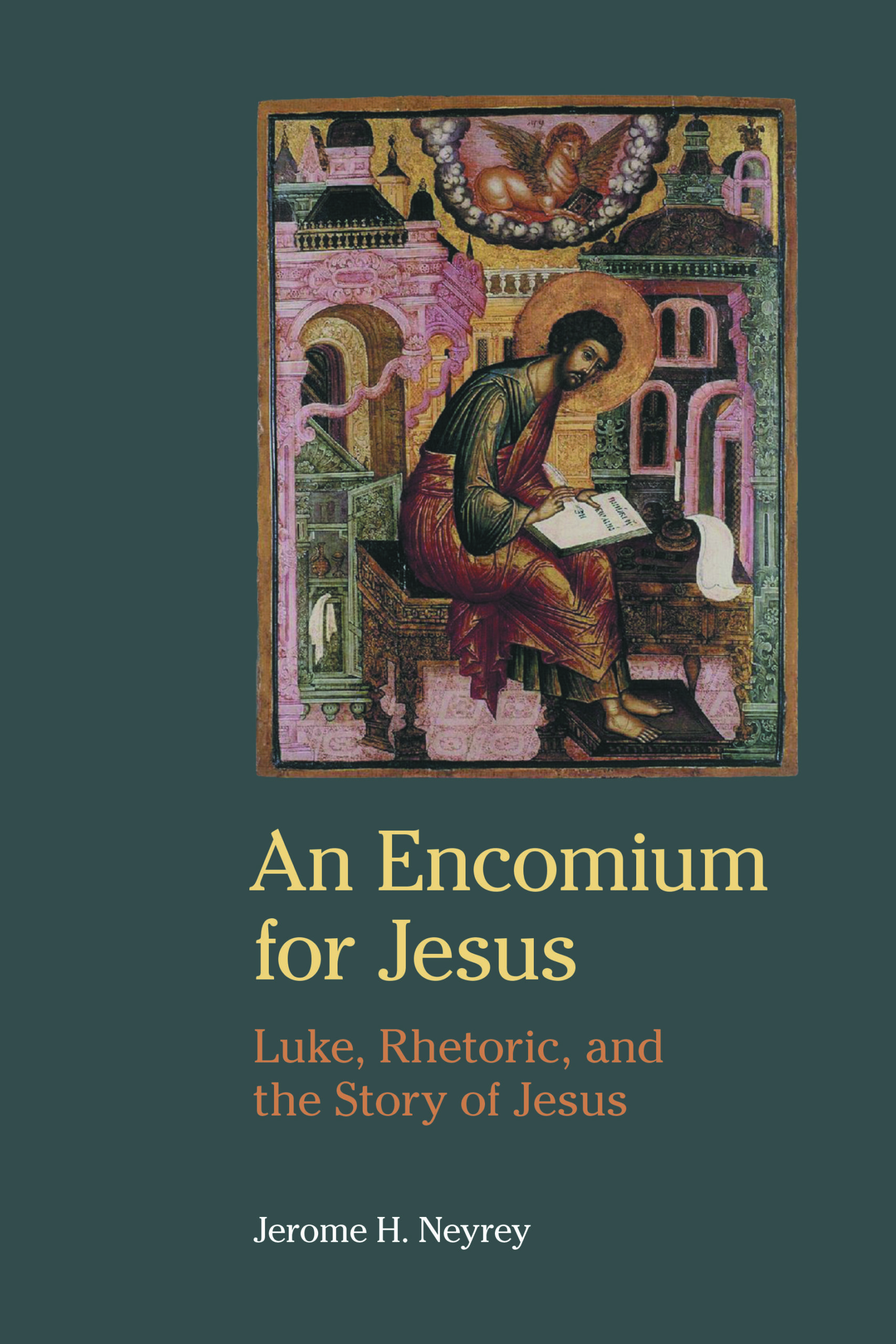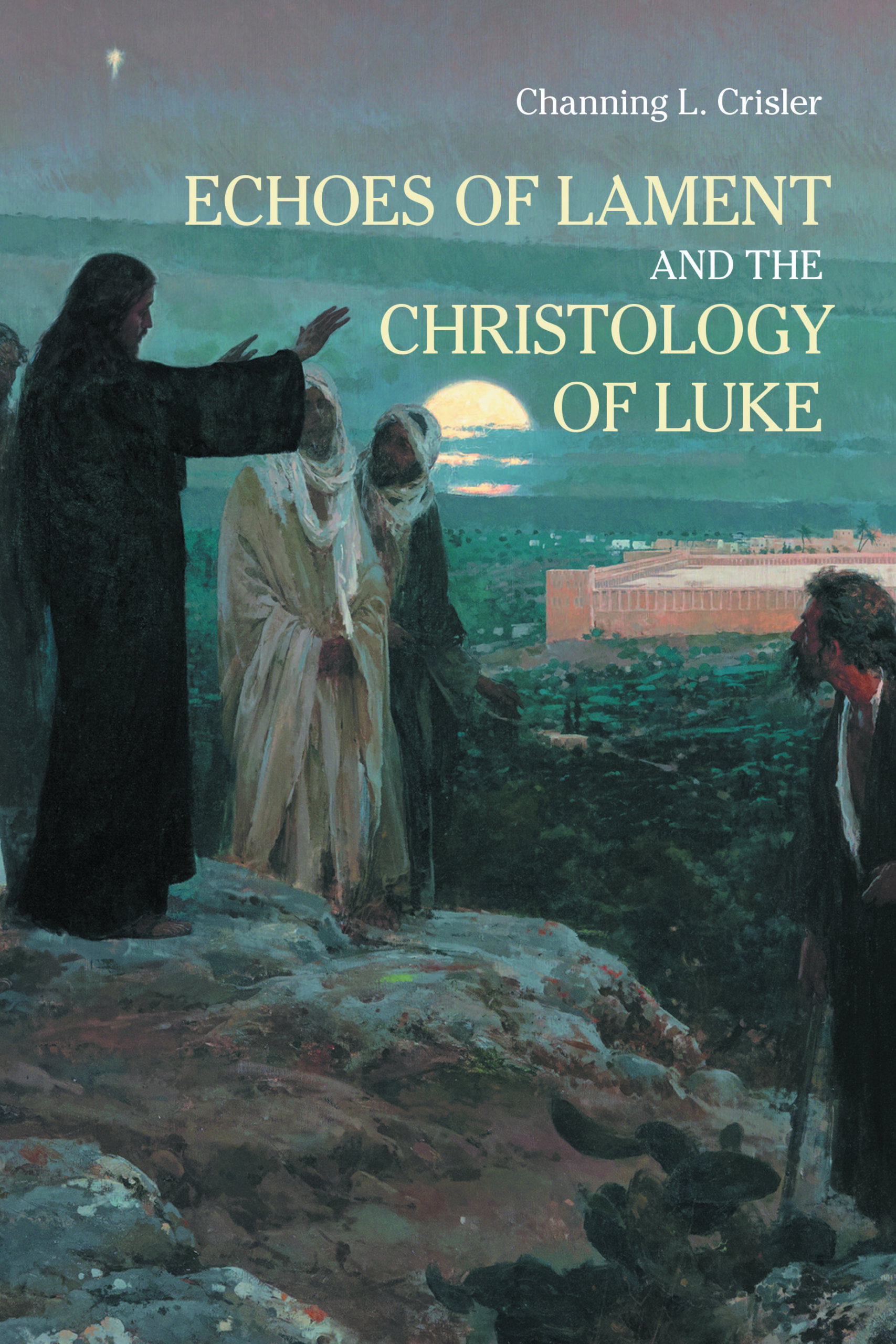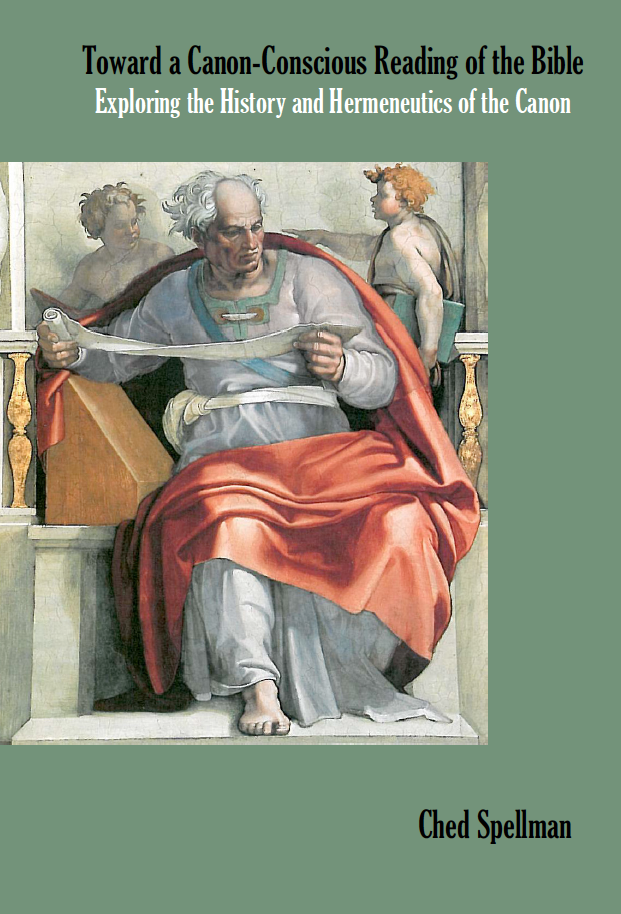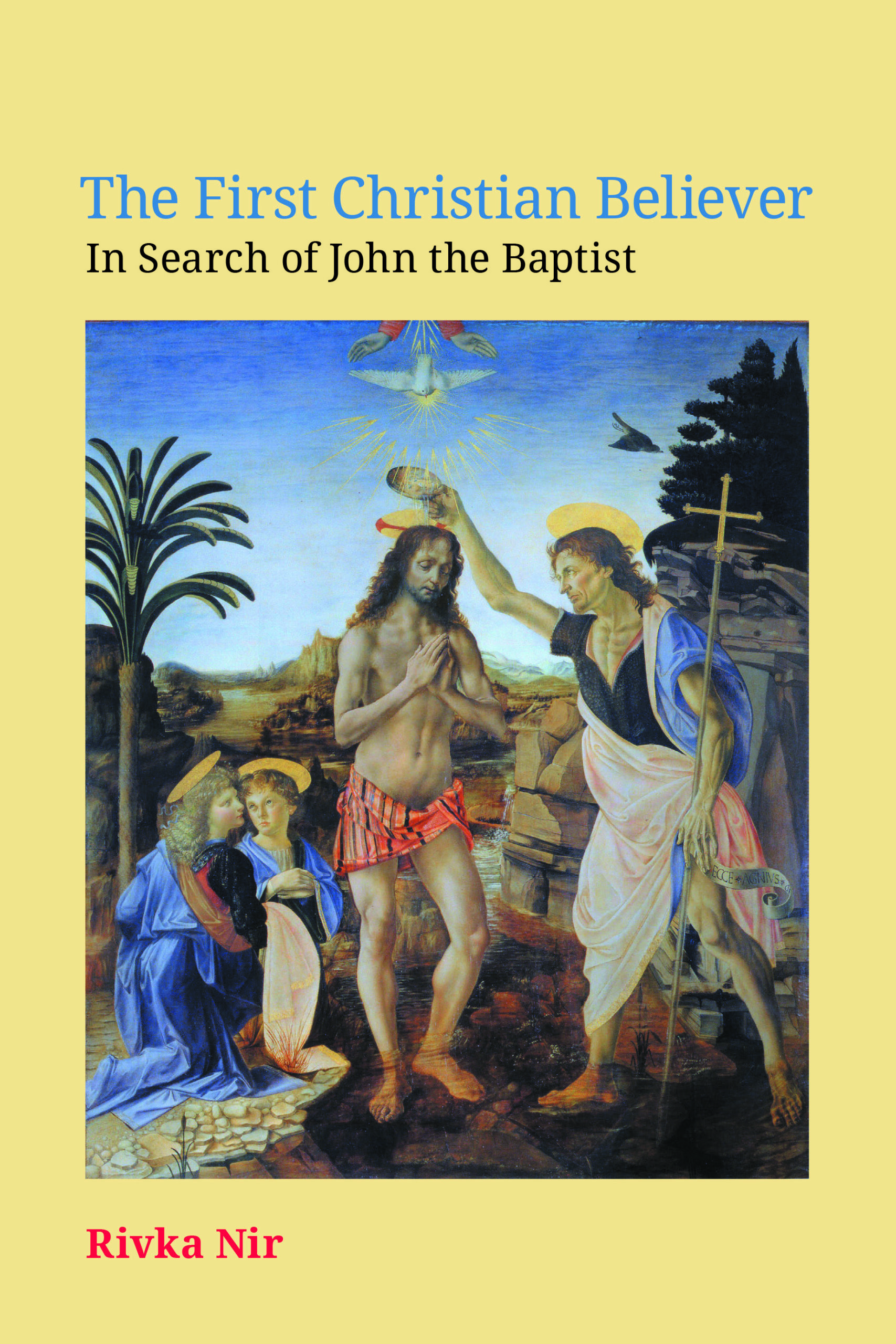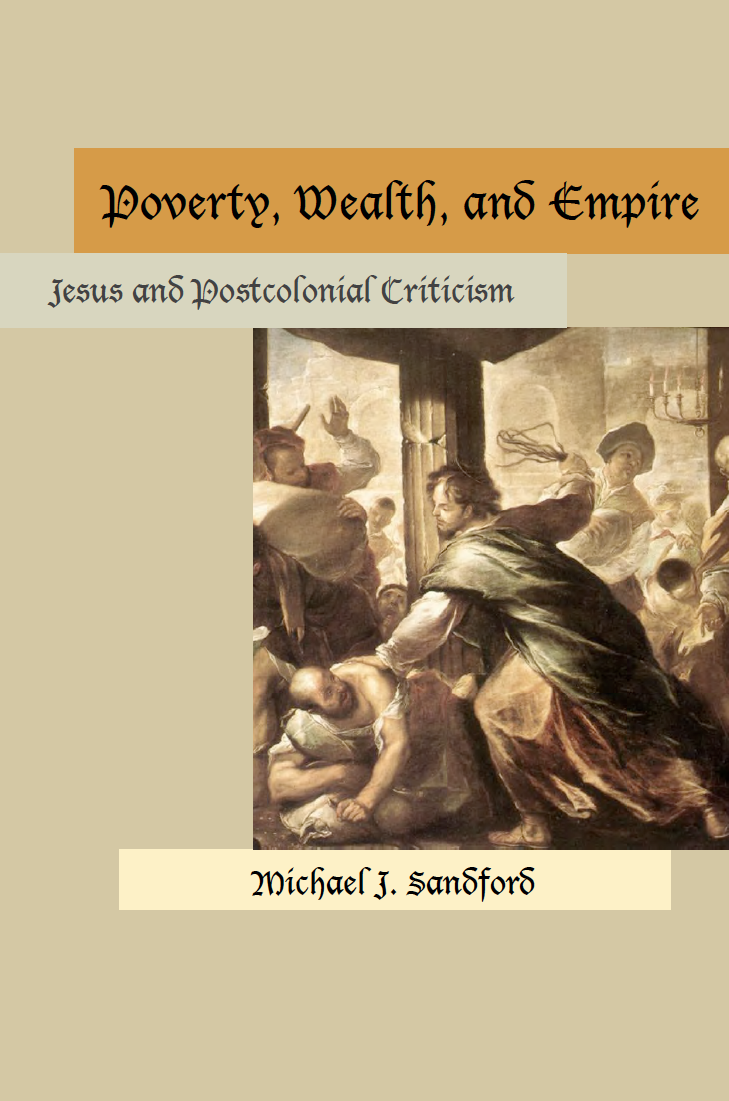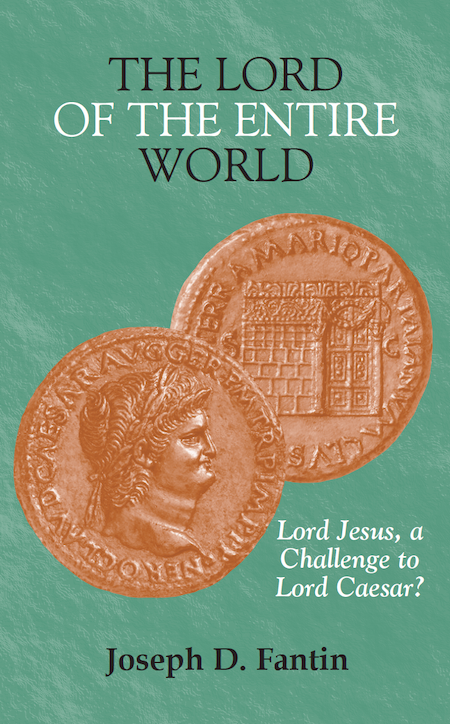Habitats of the Basileia: Essays in Honour of Elaine M. Wainwright
Published: Jan 2024
£65.00
Habitats of the Basileia brings together some of the current and important work in biblical studies and theology, which takes seriously the demands and possibilities of applying contextual, feminist, decolonial, and ecological approaches to the critical study of the Bible and religion. The volume is inspired by the engaging work of Elaine M. Wainwright RSM; and invites us to imagine what thriving conditions and communities of the human and more-than-human might look like across multiple contexts.
- What did it mean for those living in biblical times, or for the early Jesus movement who proclaimed an alternative basileia or kingdom against the backdrop of Roman imperial power?
- What does it mean for various communities today, as we seek to understand and re-imagine what thriving conditions might look like in our own complex and often rapidly changing environments?
Written by a diverse range of biblical, theological, and religious studies scholars, the chapters in this volume collectively argue for and demonstrate the importance of context and being attuned to social location in the production of biblical and theological scholarship.
The essays are divided into three categories: the first seven chapters deal with the Gospel of Matthew, given the importance of this book to Elaine’s work. The next nine chapters explore biblical texts beyond Matthew through various lenses including those of gender, colonialism, the environment, animal studies, contextual hermeneutics, and class. The final three chapters are concerned with the legacies of both Elaine’s lifework and the broader avenues in current biblical research that have been nurtured and influenced through her efforts.
Habitats of the Basileia: Essays in Honour of Elaine M. Wainwright
£65.00
Habitats of the Basileia brings together some of the current and important work in biblical studies and theology, which takes seriously the demands and possibilities of applying contextual, feminist, decolonial, and ecological approaches to the critical study of the Bible and religion. The volume is inspired by the engaging work of Elaine M. Wainwright RSM; and invites us to imagine what thriving conditions and communities of the human and more-than-human might look like across multiple contexts.
- What did it mean for those living in biblical times, or for the early Jesus movement who proclaimed an alternative basileia or kingdom against the backdrop of Roman imperial power?
- What does it mean for various communities today, as we seek to understand and re-imagine what thriving conditions might look like in our own complex and often rapidly changing environments?
Written by a diverse range of biblical, theological, and religious studies scholars, the chapters in this volume collectively argue for and demonstrate the importance of context and being attuned to social location in the production of biblical and theological scholarship.
The essays are divided into three categories: the first seven chapters deal with the Gospel of Matthew, given the importance of this book to Elaine’s work. The next nine chapters explore biblical texts beyond Matthew through various lenses including those of gender, colonialism, the environment, animal studies, contextual hermeneutics, and class. The final three chapters are concerned with the legacies of both Elaine’s lifework and the broader avenues in current biblical research that have been nurtured and influenced through her efforts.
Eschatological Approval: The Structure and Unifying Motif of James
Published: Oct 2022
£65.00
The letter of James is not a haphazard collection of wisdom sayings, but a carefully assembled document with a unifying motif, according to Daniel K. Eng. By examining the structure and content of the epistle, he shows that James contains a coherent and consistent message of eschatological approval, that is, a favourable verdict at end-time judgment.
Eng establishes that James begins with a prologue (1:1-27), indicating the author’s concern for the hearers to receive eschatological approval. After that, Eng studies the document’s structure indicated by cohesive ties and bracketing, offering an informed outline for James 2–5.
With the outline in view, Eng shows how the content of each subsection refers to a favourable eschatological outcome. Discourse analysis plays a crucial role here, because the epistle’s author indicates the prominence of certain concepts through word order and dependent clauses.
Finally, Eng argues that James 1:12 serves as a thesis statement for the whole epistle, pointing the hearers to their route to a favourable end-time judgment. His resulting outline of James resembles a fish skeleton, with the unifying motif serving as a spine. Ultimately, this volume shows how the epistle’s structure and content alike point to its unifying theme: eschatological approval.
Eschatological Approval: The Structure and Unifying Motif of James
£65.00
The letter of James is not a haphazard collection of wisdom sayings, but a carefully assembled document with a unifying motif, according to Daniel K. Eng. By examining the structure and content of the epistle, he shows that James contains a coherent and consistent message of eschatological approval, that is, a favourable verdict at end-time judgment.
Eng establishes that James begins with a prologue (1:1-27), indicating the author’s concern for the hearers to receive eschatological approval. After that, Eng studies the document’s structure indicated by cohesive ties and bracketing, offering an informed outline for James 2–5.
With the outline in view, Eng shows how the content of each subsection refers to a favourable eschatological outcome. Discourse analysis plays a crucial role here, because the epistle’s author indicates the prominence of certain concepts through word order and dependent clauses.
Finally, Eng argues that James 1:12 serves as a thesis statement for the whole epistle, pointing the hearers to their route to a favourable end-time judgment. His resulting outline of James resembles a fish skeleton, with the unifying motif serving as a spine. Ultimately, this volume shows how the epistle’s structure and content alike point to its unifying theme: eschatological approval.
Vision and Voice: Revelatory Experience in the Formation of Christian Identity
Published: Oct 2021
£60.00
Vision and Voice explores the impact of revelatory events (such as visions and voices) upon early Christian self-identity. In the Gospels, revelatory events, like the transfiguration, the voice from heaven in John 12, and Jesus' baptism, burst into the narrative almost gratuitously, without leaving a tangible, lasting impression on those who witness them. Yet from these revelatory experiences there emerged a story of how early Christians came to think of themselves as a community of Jesus followers. The revelatory events of the Gospels became an invitation to their readers to enter into the experience of Jesus' disciples, to see what they saw, to hear what they heard, reliving the visions and voices remembered by these first witnesses.
Vision and Voice: Revelatory Experience in the Formation of Christian Identity
£60.00
Vision and Voice explores the impact of revelatory events (such as visions and voices) upon early Christian self-identity. In the Gospels, revelatory events, like the transfiguration, the voice from heaven in John 12, and Jesus' baptism, burst into the narrative almost gratuitously, without leaving a tangible, lasting impression on those who witness them. Yet from these revelatory experiences there emerged a story of how early Christians came to think of themselves as a community of Jesus followers. The revelatory events of the Gospels became an invitation to their readers to enter into the experience of Jesus' disciples, to see what they saw, to hear what they heard, reliving the visions and voices remembered by these first witnesses.
Jesus the Dayspring: The Sunrise and the Visitation of Israel’s Messiah
Published: May 2021
£65.00
Messianic expectations in the first century ce were varied, but rarely did they include a figure associated with the sunrise or the direction of the east. However, in Luke's gospel the prophetic song (the 'Benedictus') of the priest Zechariah, father of John the Baptist, includes a title for Jesus that means the 'dayspring', 'dawn', or 'rising sun'. Where did this title arise?
In Jesus the Dayspring, Wenkel suggests that the connection between Jesus and the sunrise may have come from any number of texts and traditions contributing to the expectation of God's divine presence visiting his people from the sunrise. The idea of the Lord who comes from the east also plays an important role in Luke's narrative of Jesus arriving in Jerusalem from the eastern side of the city as he enters from the Mount of Olives. Such details are often underappreciated but contribute to our understanding of Jesus as a messianic figure who would come like the sunrise.
Wenkel's search for other potential influences leading to this type of messianic language takes him into Genesis, Exodus, Isaiah, Hosea and Malachi. By casting his net to include allusions to looking eastward for redemptive hope, Wenkel suggests how Luke's portrait of Jesus as the 'dayspring' or 'sunrise' fits into a larger pattern of resonance across Israel's scriptures.
Jesus the Dayspring: The Sunrise and the Visitation of Israel’s Messiah
£65.00
Messianic expectations in the first century ce were varied, but rarely did they include a figure associated with the sunrise or the direction of the east. However, in Luke's gospel the prophetic song (the 'Benedictus') of the priest Zechariah, father of John the Baptist, includes a title for Jesus that means the 'dayspring', 'dawn', or 'rising sun'. Where did this title arise?
In Jesus the Dayspring, Wenkel suggests that the connection between Jesus and the sunrise may have come from any number of texts and traditions contributing to the expectation of God's divine presence visiting his people from the sunrise. The idea of the Lord who comes from the east also plays an important role in Luke's narrative of Jesus arriving in Jerusalem from the eastern side of the city as he enters from the Mount of Olives. Such details are often underappreciated but contribute to our understanding of Jesus as a messianic figure who would come like the sunrise.
Wenkel's search for other potential influences leading to this type of messianic language takes him into Genesis, Exodus, Isaiah, Hosea and Malachi. By casting his net to include allusions to looking eastward for redemptive hope, Wenkel suggests how Luke's portrait of Jesus as the 'dayspring' or 'sunrise' fits into a larger pattern of resonance across Israel's scriptures.
Lukan Parables of Reckless Liberality
Published: Apr 2021
£60.00
From among the many parables in Luke, Amanda Brobst-Renaud chooses three, which she names 'parables of reckless liberality': the Prodigal Son, the Shrewd Steward, and the Rich Man and Lazarus. Picking up on the supposed slur that Jesus 'welcomes sinners and dines with them', Luke encourages his audience in these parables from chaps. 15 —16 in a practice of giving excessively to the wrong people at inappropriate times (flouting Aristotle's advice on liberality in the Nicomachean Ethics).
Each parable in this volume presents at least one of its characters in crisis; these situations demand a decisive response. We all know the crises faced by the younger son, the steward, and the rich man, but the crises confronting the elder son and the rich man's brothers are equally dire, starkly sketched by the open questions left hanging at the end of each parable. Will the elder son join the party, celebrating his once-dead younger brother? Will the steward secure an eternal welcome? Will the rich man's brothers heed Moses and the prophets, or will they meet the same fate as the rich man?
In each case, reckless liberality answers the characters' quandaries and demands of Luke's auditors that they choose between emulating or avoiding the behaviors of the characters. The elder son should join the party and imitate his father's reckless liberality: giving to someone undeserving, at an inappropriate time, and to an excessive amount. The steward's highly questionable profligacy plus his debt-reduction schemes nevertheless earn his master's praise and secure his welcome (Lk. 16.9). The rich man's brothers should listen to the call of the law and the prophets to care for the poor and disenfranchised, and show reckless liberality to any Lazarus on their thresholds. Showing reckless liberality gives entrance into the eschatological party (Lk. 16.16).
Lukan Parables of Reckless Liberality
£60.00
From among the many parables in Luke, Amanda Brobst-Renaud chooses three, which she names 'parables of reckless liberality': the Prodigal Son, the Shrewd Steward, and the Rich Man and Lazarus. Picking up on the supposed slur that Jesus 'welcomes sinners and dines with them', Luke encourages his audience in these parables from chaps. 15 —16 in a practice of giving excessively to the wrong people at inappropriate times (flouting Aristotle's advice on liberality in the Nicomachean Ethics).
Each parable in this volume presents at least one of its characters in crisis; these situations demand a decisive response. We all know the crises faced by the younger son, the steward, and the rich man, but the crises confronting the elder son and the rich man's brothers are equally dire, starkly sketched by the open questions left hanging at the end of each parable. Will the elder son join the party, celebrating his once-dead younger brother? Will the steward secure an eternal welcome? Will the rich man's brothers heed Moses and the prophets, or will they meet the same fate as the rich man?
In each case, reckless liberality answers the characters' quandaries and demands of Luke's auditors that they choose between emulating or avoiding the behaviors of the characters. The elder son should join the party and imitate his father's reckless liberality: giving to someone undeserving, at an inappropriate time, and to an excessive amount. The steward's highly questionable profligacy plus his debt-reduction schemes nevertheless earn his master's praise and secure his welcome (Lk. 16.9). The rich man's brothers should listen to the call of the law and the prophets to care for the poor and disenfranchised, and show reckless liberality to any Lazarus on their thresholds. Showing reckless liberality gives entrance into the eschatological party (Lk. 16.16).
Spirit and Story: Essays in Honour of John Christopher Thomas
Published: Nov 2020
£70.00
This collection of essays brings together an international group of biblical scholars, theologians, and historians who are committed to readings of biblical texts that are sensitive to the work of the Spirit. Perhaps no one has contributed more in recent decades to the description and promotion of Pentecostal Theology than Chris Thomas, and this volume serves as a loving and respectful tribute to his commitment and achievement.
Thomas's own work on the story told in the Gospel and Letters of John as well as his explorations into the narrative structure of the Apocalypse are models not only of exegetical proficiency but also of the careful elucidation of the text for the general reader as well as the expert. Moreover, his work is distinguished by a prayerful pastoral commitment as his ear is consistently attentive to what the Spirit is saying to the church.
The influence of Chris Thomas has been very considerable. The essays presented here capture the scope of his interests and of his important contribution to both the church and the academy.
Spirit and Story: Essays in Honour of John Christopher Thomas
£70.00
This collection of essays brings together an international group of biblical scholars, theologians, and historians who are committed to readings of biblical texts that are sensitive to the work of the Spirit. Perhaps no one has contributed more in recent decades to the description and promotion of Pentecostal Theology than Chris Thomas, and this volume serves as a loving and respectful tribute to his commitment and achievement.
Thomas's own work on the story told in the Gospel and Letters of John as well as his explorations into the narrative structure of the Apocalypse are models not only of exegetical proficiency but also of the careful elucidation of the text for the general reader as well as the expert. Moreover, his work is distinguished by a prayerful pastoral commitment as his ear is consistently attentive to what the Spirit is saying to the church.
The influence of Chris Thomas has been very considerable. The essays presented here capture the scope of his interests and of his important contribution to both the church and the academy.
An Encomium for Jesus: Luke, Rhetoric, and the Story of Jesus
Published: May 2020
£50.00
Luke's narrative about Jesus followed the conventions for ancient biography. Trained in rhetoric, Luke employed the genre of the encomium, which regularly used to showcase biographical aspects of a person's life worthy of honour. An Encomium for Jesus argues that Luke mastered the genre, its conventional topics, and specific instructions for composing one.
The usual topics of an encomium served as Luke's template to organize and narrate the life of Jesus. The first topic,'origins', displayed Jesus' worth in terms of his geographical origins (Bethlehem) and generational origins (son of David, heir to his throne). His genealogy confirms a very noble ancestry. Angels and prophets speak to the importance of his birth, all conventional items.
Second, Jesus was raised as an observant Israelite: circumcised, dedicated, and an annual participant at Passover; he customarily attended synagogue. Although precocious, he lacked training in a familial virtue, which he learned subsequently by obedience to his parents.
An encomium focused on a person's actions, generally described in terms of the canonical virtues, wisdom, courage, justice and self-control. Luke adeptly portrayed Jesus' actions according to these virtues, correctly presuming that his audience would label this or that action as virtuous, a safe assumption. Jesus was wise in understanding people, courageous in facing death, just in his teaching, and moderate in controlling emotional reactions.
An encomium should also speak of a person's death, a conventional feature in funeral oratory. Luke employed the tradition of the 'noble death' to highlight aspects of Jesus' death, especially its voluntary and beneficial aspects. Most importantly, he narrated the many posthumous honours awarded Jesus, as cited in Acts: he did not see death; God vindicated and enthroned him; and he became the Author of salvation. Thus Luke composed a conventional Encomium for Jesus.
An Encomium for Jesus: Luke, Rhetoric, and the Story of Jesus
£50.00
Luke's narrative about Jesus followed the conventions for ancient biography. Trained in rhetoric, Luke employed the genre of the encomium, which regularly used to showcase biographical aspects of a person's life worthy of honour. An Encomium for Jesus argues that Luke mastered the genre, its conventional topics, and specific instructions for composing one.
The usual topics of an encomium served as Luke's template to organize and narrate the life of Jesus. The first topic,'origins', displayed Jesus' worth in terms of his geographical origins (Bethlehem) and generational origins (son of David, heir to his throne). His genealogy confirms a very noble ancestry. Angels and prophets speak to the importance of his birth, all conventional items.
Second, Jesus was raised as an observant Israelite: circumcised, dedicated, and an annual participant at Passover; he customarily attended synagogue. Although precocious, he lacked training in a familial virtue, which he learned subsequently by obedience to his parents.
An encomium focused on a person's actions, generally described in terms of the canonical virtues, wisdom, courage, justice and self-control. Luke adeptly portrayed Jesus' actions according to these virtues, correctly presuming that his audience would label this or that action as virtuous, a safe assumption. Jesus was wise in understanding people, courageous in facing death, just in his teaching, and moderate in controlling emotional reactions.
An encomium should also speak of a person's death, a conventional feature in funeral oratory. Luke employed the tradition of the 'noble death' to highlight aspects of Jesus' death, especially its voluntary and beneficial aspects. Most importantly, he narrated the many posthumous honours awarded Jesus, as cited in Acts: he did not see death; God vindicated and enthroned him; and he became the Author of salvation. Thus Luke composed a conventional Encomium for Jesus.
Echoes of Lament in the Christology of Luke’s Gospel
Published: Apr 2020
£70.00
Scholars have long recognized that prayer and Israel's Scriptures play a pivotal role in the Christology of Luke. In this study, these two features converge in an underappreciated feature of Luke's Gospel, namely the many laments uttered to Jesus and by Jesus. Lukan characters frequently cry out to Jesus in a way that echoes the prayers of lament directed to Yhwh in Israel's Scriptures.
As well, the Lukan Jesus utters his own laments, also echoing prayers of lament from Israel's Scriptures. Crisler suggests that the interplay between the laments crafted by Luke and laments from Israel's Scriptures produce highly suggestive Christological points of resonance. Luke consistently characterizes Jesus as both someone who represents God by answering laments as only Yhwh can and as a righteous lamenter who models, teaches, and participates in lament to Israel's God. This double characterization is particularly visible in the crucifixion scene where the Lukan Jesus both answers and participates in lament. Crisler considers how these echoes of lament shape our understanding of Lukan Christology and make a contribution to ongoing debates about earliest Christology.
Echoes of Lament in the Christology of Luke’s Gospel
£70.00
Scholars have long recognized that prayer and Israel's Scriptures play a pivotal role in the Christology of Luke. In this study, these two features converge in an underappreciated feature of Luke's Gospel, namely the many laments uttered to Jesus and by Jesus. Lukan characters frequently cry out to Jesus in a way that echoes the prayers of lament directed to Yhwh in Israel's Scriptures.
As well, the Lukan Jesus utters his own laments, also echoing prayers of lament from Israel's Scriptures. Crisler suggests that the interplay between the laments crafted by Luke and laments from Israel's Scriptures produce highly suggestive Christological points of resonance. Luke consistently characterizes Jesus as both someone who represents God by answering laments as only Yhwh can and as a righteous lamenter who models, teaches, and participates in lament to Israel's God. This double characterization is particularly visible in the crucifixion scene where the Lukan Jesus both answers and participates in lament. Crisler considers how these echoes of lament shape our understanding of Lukan Christology and make a contribution to ongoing debates about earliest Christology.
Toward a Canon-Conscious Reading of the Bible: Exploring the History and Hermeneutics of the Canon
Published: Mar 2020
Price range: £22.00 through £70.00
Two distinct questions about the canon of the Bible can be raised: (1) How did the biblical canon come to be?, and (2) What effect does that canon have on its readers? The former is a historical question about the formation of the biblical canon; the latter is a hermeneutical question about the function of the biblical canon. Though these questions have often been pursued in virtual isolation from one another, Spellman argues that there are considerable gains from observing the interconnections between the two lines of inquiry.
On the historical question of the origin of the canon, Spellman asks, Is the shape of this collection an accident of history or a result of intelligent design? He concludes that canon-consciousness played an important role in the formation of the canon, even impinging on the work of the biblical authors themselves. On the hermeneutical question, the communities of readers of the Bible may also be shown to have been directed by their own canon-consciousness, using it as a guide in their interpretative task.
In this interdisciplinary work, Spellman marshals historical, theological and hermeneutical resources in order to paint a picture of how the concept of canon can enrich reading communities of today.
Toward a Canon-Conscious Reading of the Bible: Exploring the History and Hermeneutics of the Canon
Price range: £22.00 through £70.00
Two distinct questions about the canon of the Bible can be raised: (1) How did the biblical canon come to be?, and (2) What effect does that canon have on its readers? The former is a historical question about the formation of the biblical canon; the latter is a hermeneutical question about the function of the biblical canon. Though these questions have often been pursued in virtual isolation from one another, Spellman argues that there are considerable gains from observing the interconnections between the two lines of inquiry.
On the historical question of the origin of the canon, Spellman asks, Is the shape of this collection an accident of history or a result of intelligent design? He concludes that canon-consciousness played an important role in the formation of the canon, even impinging on the work of the biblical authors themselves. On the hermeneutical question, the communities of readers of the Bible may also be shown to have been directed by their own canon-consciousness, using it as a guide in their interpretative task.
In this interdisciplinary work, Spellman marshals historical, theological and hermeneutical resources in order to paint a picture of how the concept of canon can enrich reading communities of today.
The First Christian Believer: In Search of John the Baptist
Published: May 2019
£65.00
Current research on John the Baptist is fixated on reconstructing the historical John against the religious, social and ideological environment of first-century CE Judaism. The consensus is that this John originally lived and operated within Jewish society without any connection with the fledgling Christian community and was made the Messiah's forerunner only in later Christian tradition.
In this study, Nir radically changes the focus for John the Baptist research. All our sources about John, she argues, tell us not about a historical person but lead us invariably to a character who exists essentially in early Christian literature. The Gospels are sources for Christian theology's world of beliefs, ideas and messianic perception in the first century, and its materials about John the Baptist are inevitably the handiwork of Christian tradition and its theological tendencies.
Whatever we are told about John, how he looked, the baptism he instituted, the geographical arena of his activity, the speeches he made, his birth and death, is understandable — whether as isolated details or in their integration into a whole picture — only against the background of Christian theology and its Christology.
As against prevailing research on John the Baptist, which aims to break through the Gospel tradition and expose his original Jewishness, Nir challenges us to draw lines of separation between John and Judaism, affirming his difference from Judaism.
This Christian John, whom we can rightfully call the first Christian believer, is the only John the Baptist we can access.
The First Christian Believer: In Search of John the Baptist
£65.00
Current research on John the Baptist is fixated on reconstructing the historical John against the religious, social and ideological environment of first-century CE Judaism. The consensus is that this John originally lived and operated within Jewish society without any connection with the fledgling Christian community and was made the Messiah's forerunner only in later Christian tradition.
In this study, Nir radically changes the focus for John the Baptist research. All our sources about John, she argues, tell us not about a historical person but lead us invariably to a character who exists essentially in early Christian literature. The Gospels are sources for Christian theology's world of beliefs, ideas and messianic perception in the first century, and its materials about John the Baptist are inevitably the handiwork of Christian tradition and its theological tendencies.
Whatever we are told about John, how he looked, the baptism he instituted, the geographical arena of his activity, the speeches he made, his birth and death, is understandable — whether as isolated details or in their integration into a whole picture — only against the background of Christian theology and its Christology.
As against prevailing research on John the Baptist, which aims to break through the Gospel tradition and expose his original Jewishness, Nir challenges us to draw lines of separation between John and Judaism, affirming his difference from Judaism.
This Christian John, whom we can rightfully call the first Christian believer, is the only John the Baptist we can access.
The Letter to the Romans: A Linguistic and Literary Commentary
Published: Oct 2015
Price range: £19.50 through £50.00
This substantial new commentary, expounding the letter paragraph by paragraph, is distinctive among commentaries on Romans in foregrounding a linguistic and literary approach. To comprehend the letter, Porter shows, we must always be aware of the letter-writing and linguistically based rhetorical conventions its author was deploying.
The commentary is organized around the five-part epistolary structure that Paul developed for this fundamental letter, a structure that gives shape to its logically unfolding theological argument. Recognizing this structure is vital for interpreting the traditional sections of the body of the letter, as well as for understanding the placement of the problematic chapters 9 —11 within Paul's thought.
One of the primary means of development Paul uses within the letter is dialogical interaction —what the ancients called diatribe —as a linguistic device for shaping and presenting his argument. Through the insistent questions and responses of the interaction, Paul opens up the major theological issues of the letter —human depravity, sin and works, justification and righteousness, reconciliation, life in the Spirit, and the role of Israel —and shapes the way his addressees should respond to them.
The Letter to the Romans: A Linguistic and Literary Commentary
Price range: £19.50 through £50.00
This substantial new commentary, expounding the letter paragraph by paragraph, is distinctive among commentaries on Romans in foregrounding a linguistic and literary approach. To comprehend the letter, Porter shows, we must always be aware of the letter-writing and linguistically based rhetorical conventions its author was deploying.
The commentary is organized around the five-part epistolary structure that Paul developed for this fundamental letter, a structure that gives shape to its logically unfolding theological argument. Recognizing this structure is vital for interpreting the traditional sections of the body of the letter, as well as for understanding the placement of the problematic chapters 9 —11 within Paul's thought.
One of the primary means of development Paul uses within the letter is dialogical interaction —what the ancients called diatribe —as a linguistic device for shaping and presenting his argument. Through the insistent questions and responses of the interaction, Paul opens up the major theological issues of the letter —human depravity, sin and works, justification and righteousness, reconciliation, life in the Spirit, and the role of Israel —and shapes the way his addressees should respond to them.
The Integrity of 2 Corinthians and Paul’s Aggravating Absence
Published: Sep 2015
£60.00
Is 2 Corinthians a single letter, or a composite of fragments? Does it have a single setting, or do its parts address successive stages in a developing crisis? This is perennial set of questions about this Pauline letter.
In this provocative study, Christopher D. Land steps back from the details that dominate most discussions of integrity. He analyses 2 Corinthians using a theoretically motivated procedure, avoiding the cherry-picking that plagues so many language-related arguments. Then, drawing upon this analysis, he segments 2 Corinthians into five parts. Examining the sorts of meanings employed in each segment, Land asks what is being talked about, what is being done, and who is taking part.
He distinguishes between the settings in which texts are produced and the situations construed by their language, and he affirms both the conventional nature of intra-textual variation and the principle that coherent texts construe coherent situations. In the end, Land argues that 2 Corinthians has the general appearance of being a single text, and that its specifics ought to be re-examined accordingly.
Irrespective of linguistics and literary integrity, scholars of all persuasions will be interested in the specifics. Among other things, Land argues that there is no single 'offender' underlying Paul's remarks in chaps. 2 and 7, but a plurality of misbehaving church members. Paul has been accused of holding the church responsible for problems caused by his prolonged absence; and other Christian missionaries are stoking the church's discontent, criticizing Paul's ineffectual leadership and advancing their own as superior. To confront this crisis, Paul must simultaneously placate his readers, reiterate his demand that they care for themselves in his absence, and persuade them not to abandon him for 'stronger' leadership.
The Integrity of 2 Corinthians and Paul’s Aggravating Absence
£60.00
Is 2 Corinthians a single letter, or a composite of fragments? Does it have a single setting, or do its parts address successive stages in a developing crisis? This is perennial set of questions about this Pauline letter.
In this provocative study, Christopher D. Land steps back from the details that dominate most discussions of integrity. He analyses 2 Corinthians using a theoretically motivated procedure, avoiding the cherry-picking that plagues so many language-related arguments. Then, drawing upon this analysis, he segments 2 Corinthians into five parts. Examining the sorts of meanings employed in each segment, Land asks what is being talked about, what is being done, and who is taking part.
He distinguishes between the settings in which texts are produced and the situations construed by their language, and he affirms both the conventional nature of intra-textual variation and the principle that coherent texts construe coherent situations. In the end, Land argues that 2 Corinthians has the general appearance of being a single text, and that its specifics ought to be re-examined accordingly.
Irrespective of linguistics and literary integrity, scholars of all persuasions will be interested in the specifics. Among other things, Land argues that there is no single 'offender' underlying Paul's remarks in chaps. 2 and 7, but a plurality of misbehaving church members. Paul has been accused of holding the church responsible for problems caused by his prolonged absence; and other Christian missionaries are stoking the church's discontent, criticizing Paul's ineffectual leadership and advancing their own as superior. To confront this crisis, Paul must simultaneously placate his readers, reiterate his demand that they care for themselves in his absence, and persuade them not to abandon him for 'stronger' leadership.
Poverty, Wealth, and Empire: Jesus and Postcolonial Criticism
Published: Mar 2014
£45.00
Poverty, Wealth, and Empire presents an antidote to the liberal Jesuses that are constantly being constructed by theologians and historians in universities and seminaries in the West. Sandford's programme is to pay attention to those texts where Jesus appears hostile to his audiences, or even invokes the idea of divine judgment and violence against certain groups. Drawing on a variety of texts in the synoptic gospels, Sandford finds violent denouncements of the rich and those who neglect the needy to be a consistent theme in Jesus' teaching.
Rather than deploying biblical texts to support an anti-imperial or liberationist agenda, Sandford foregrounds troubling and problematic texts. Among them are wisdom sayings that justify poverty, texts that denigrate particular ethnic groups, and the ideology inherent in Jesus' teachings about the 'the Kingdom of God'. On such a basis Sandford is able to call into question the effectiveness of mainline Christian scholarly interpretations of Jesus in dealing with the most profound ethical problems of our time: poverty, domination and violence.
Always alert to the assumptions and prejudices of much Western New Testament scholarship, Sandford draws attention to its intellectual contradictions, and, furthermore, to the way in which this scholarship has sometimes served to undergird and justify systems of oppression —in particular by its demonstrable dodging of the issue of material poverty and its causes. Building on recent debates in postcolonial biblical criticism, Sandford offers a decidedly 'illiberal' reading of Jesus' sayings on divine judgment, focusing on the paradoxical idea of a 'nonviolent' Jesus who nevertheless pronounces divine violence upon the rich.
Poverty, Wealth, and Empire: Jesus and Postcolonial Criticism
£45.00
Poverty, Wealth, and Empire presents an antidote to the liberal Jesuses that are constantly being constructed by theologians and historians in universities and seminaries in the West. Sandford's programme is to pay attention to those texts where Jesus appears hostile to his audiences, or even invokes the idea of divine judgment and violence against certain groups. Drawing on a variety of texts in the synoptic gospels, Sandford finds violent denouncements of the rich and those who neglect the needy to be a consistent theme in Jesus' teaching.
Rather than deploying biblical texts to support an anti-imperial or liberationist agenda, Sandford foregrounds troubling and problematic texts. Among them are wisdom sayings that justify poverty, texts that denigrate particular ethnic groups, and the ideology inherent in Jesus' teachings about the 'the Kingdom of God'. On such a basis Sandford is able to call into question the effectiveness of mainline Christian scholarly interpretations of Jesus in dealing with the most profound ethical problems of our time: poverty, domination and violence.
Always alert to the assumptions and prejudices of much Western New Testament scholarship, Sandford draws attention to its intellectual contradictions, and, furthermore, to the way in which this scholarship has sometimes served to undergird and justify systems of oppression —in particular by its demonstrable dodging of the issue of material poverty and its causes. Building on recent debates in postcolonial biblical criticism, Sandford offers a decidedly 'illiberal' reading of Jesus' sayings on divine judgment, focusing on the paradoxical idea of a 'nonviolent' Jesus who nevertheless pronounces divine violence upon the rich.
Jesus and the People of God: Reconfiguring Ethnic Identity
Published: May 2013
Price range: £19.50 through £50.00
How did the Jesus movement —a messianic sectarian version of Palestinian Judaism —transcend its Judaean origins and ultimately establish itself in the Roman East as the multi-ethnic socio-religious experiment we know as early Christianity?
In this major work, Hellerman, drawing upon his background as a social historian, proposes that a clue to the success of the Christian movement lay in Jesus' own conception of the people of God, and in how he reconfigured its identity from that of ethnos to that of family.
Pointing first to Jesus' critique of sabbath-keeping, the Jerusalem temple, and Jewish dietary laws —practices central to the preservation of Judaean social identity —he argues that Jesus' intention was to destabilize the idea of God's people as a localized ethnos. In its place he conceived the social identity of the people of God as a surrogate family or kinship group, a social entity based not on common ancestry but on a shared commitment to his kingdom programme.
Jesus of Nazareth thus functioned as a kind of ethnic entrepreneur, breaking down the boundaries of ethnic Judaism and providing an ideological foundation and symbolic framework for the wider expansion of the Jesus movement.
Jesus and the People of God: Reconfiguring Ethnic Identity
Price range: £19.50 through £50.00
How did the Jesus movement —a messianic sectarian version of Palestinian Judaism —transcend its Judaean origins and ultimately establish itself in the Roman East as the multi-ethnic socio-religious experiment we know as early Christianity?
In this major work, Hellerman, drawing upon his background as a social historian, proposes that a clue to the success of the Christian movement lay in Jesus' own conception of the people of God, and in how he reconfigured its identity from that of ethnos to that of family.
Pointing first to Jesus' critique of sabbath-keeping, the Jerusalem temple, and Jewish dietary laws —practices central to the preservation of Judaean social identity —he argues that Jesus' intention was to destabilize the idea of God's people as a localized ethnos. In its place he conceived the social identity of the people of God as a surrogate family or kinship group, a social entity based not on common ancestry but on a shared commitment to his kingdom programme.
Jesus of Nazareth thus functioned as a kind of ethnic entrepreneur, breaking down the boundaries of ethnic Judaism and providing an ideological foundation and symbolic framework for the wider expansion of the Jesus movement.
Between Author and Audience in Mark: Narration, Characterization, Interpretation
Published: May 2013
Price range: £16.50 through £45.00
To hear, read, and interpret the Gospel of Mark is to become involved in the dynamic relationship between author (real or implied) and audience (implied or real). So we have learned from the 'literary turn' in biblical interpretation. But there remains another dynamic relationship in which we are of necessity involved: that of the literary and the historical questions surrounding the text. Clearly, multiple approaches are called for by anyone who wishes to claim a place in the on-going audience of the Gospel of Mark.
The first three essays in this volume move in different ways between real and implied Markan realities: from implied audience to real (ancient) audience, from real (contemporary, oral) narrator to implied (ancient, oral) narrator, and from implied audience to various real (or 'unimplied') audiences. The next three essays treat the central Markan reality of parable as it connects author, narrator, and audience in challenging ways. The final three essays concern the relation of Mark's characters among themselves or the relation of narrator and character, recognizing the complexity of characterization in the Gospel as a form of communication between author and audience.
Between Author and Audience in Mark: Narration, Characterization, Interpretation
Price range: £16.50 through £45.00
To hear, read, and interpret the Gospel of Mark is to become involved in the dynamic relationship between author (real or implied) and audience (implied or real). So we have learned from the 'literary turn' in biblical interpretation. But there remains another dynamic relationship in which we are of necessity involved: that of the literary and the historical questions surrounding the text. Clearly, multiple approaches are called for by anyone who wishes to claim a place in the on-going audience of the Gospel of Mark.
The first three essays in this volume move in different ways between real and implied Markan realities: from implied audience to real (ancient) audience, from real (contemporary, oral) narrator to implied (ancient, oral) narrator, and from implied audience to various real (or 'unimplied') audiences. The next three essays treat the central Markan reality of parable as it connects author, narrator, and audience in challenging ways. The final three essays concern the relation of Mark's characters among themselves or the relation of narrator and character, recognizing the complexity of characterization in the Gospel as a form of communication between author and audience.
The Death of Judas: The Characterization of Judas Iscariot in Three Early Christian Accounts of His Death
Published: Oct 2012
£60.00
Images of Judas across the centuries of Christian interpretation predominantly depict him as an object of horror and condemnation. Some modern interpreters have argued, however, that details about Judas in the canonical Gospels, such as his remorse and suicide, are tragic elements that vindicate Judas, to some extent at least. In addition, the recent discovery of the Gospel of Judas has provided further evidence that even in antiquity there were widely differing views of Judas. The question of the characterization of Judas in early Christianity remains open.
Ancient rhetorical handbooks and countless examples from the literature of the Greco-Roman period reveal that death-accounts were regarded as fertile opportunities for shaping the characterization of a figure. Authors and audiences shared the expectation that the manner of a person's death revealed character. This insight provides a new window into the interpretation of Judas in the early Christian era, since three accounts of the death of Judas have survived from before 150 CE through the Gospel of Matthew, the Acts of the Apostles, and the fragments of Papias.
Strategies for encomium and invective, and other elements of Greco-Roman and Jewish literary portraiture, vividly reveal the character-shaping significance of the details in the accounts of Judas's death. His final words, final actions, and the mode of his death —whether suicide by hanging, falling headlong and bursting, or swelling to the size of a wagon —all would have been understood to signify Judas's inner qualities and indicate his moral worth. To ancient auditors, the characterization of Judas in these texts could lead only to the assessment of Jesus, 'Woe to that one by whom the Son of Man is betrayed! It would have been better for that one not to have been born' (Matt. 26.24).
The Death of Judas: The Characterization of Judas Iscariot in Three Early Christian Accounts of His Death
£60.00
Images of Judas across the centuries of Christian interpretation predominantly depict him as an object of horror and condemnation. Some modern interpreters have argued, however, that details about Judas in the canonical Gospels, such as his remorse and suicide, are tragic elements that vindicate Judas, to some extent at least. In addition, the recent discovery of the Gospel of Judas has provided further evidence that even in antiquity there were widely differing views of Judas. The question of the characterization of Judas in early Christianity remains open.
Ancient rhetorical handbooks and countless examples from the literature of the Greco-Roman period reveal that death-accounts were regarded as fertile opportunities for shaping the characterization of a figure. Authors and audiences shared the expectation that the manner of a person's death revealed character. This insight provides a new window into the interpretation of Judas in the early Christian era, since three accounts of the death of Judas have survived from before 150 CE through the Gospel of Matthew, the Acts of the Apostles, and the fragments of Papias.
Strategies for encomium and invective, and other elements of Greco-Roman and Jewish literary portraiture, vividly reveal the character-shaping significance of the details in the accounts of Judas's death. His final words, final actions, and the mode of his death —whether suicide by hanging, falling headlong and bursting, or swelling to the size of a wagon —all would have been understood to signify Judas's inner qualities and indicate his moral worth. To ancient auditors, the characterization of Judas in these texts could lead only to the assessment of Jesus, 'Woe to that one by whom the Son of Man is betrayed! It would have been better for that one not to have been born' (Matt. 26.24).
The Letter to the Romans: Salvation as Justice and the Deconstruction of Law
Published: Sep 2011
£70.00
Romans, says Waetjen, is the first publication of the Christ movement. To understand it well is therefore a task of monumental importance, and to understand it today requires a postmodern hermeneutics, in which the interpreter's subjective experience of reading the text is correlated with historical-critical knowledge and social-scientific criticism. That hermeneutics has to create a new genre of commentary, making room for readers' prior understandings as well as for a dynamic form of close reading and consistency building. The outcome is a contemporizing of Paul's theology that induces conversation with Derrida, Žižek, Badiou and Agamben and others.
The central theme of Romans is, according to Waetjen, the healing of humanity through the realization of 'the justice of God', which is disclosed in the movement 'out of trust into trust', or, more specifically, out of the trust of Abraham into the trust of Jesus Christ. Living on this side of the law of Sinai and therefore being conscious of the condition of sin requires the reconciliation of Christ's death and the justification of Christ's resurrection in order to participate in the New Humanity of life-giving spirits.
Consequently Romans is more than a rhetorical effort to mediate conflicts between Jewish and Gentile believers in Rome. Composed prior to his journey to Jerusalem with the possibility of martyrdom before him, the letter is Paul's major theological testament.
The Letter to the Romans: Salvation as Justice and the Deconstruction of Law
£70.00
Romans, says Waetjen, is the first publication of the Christ movement. To understand it well is therefore a task of monumental importance, and to understand it today requires a postmodern hermeneutics, in which the interpreter's subjective experience of reading the text is correlated with historical-critical knowledge and social-scientific criticism. That hermeneutics has to create a new genre of commentary, making room for readers' prior understandings as well as for a dynamic form of close reading and consistency building. The outcome is a contemporizing of Paul's theology that induces conversation with Derrida, Žižek, Badiou and Agamben and others.
The central theme of Romans is, according to Waetjen, the healing of humanity through the realization of 'the justice of God', which is disclosed in the movement 'out of trust into trust', or, more specifically, out of the trust of Abraham into the trust of Jesus Christ. Living on this side of the law of Sinai and therefore being conscious of the condition of sin requires the reconciliation of Christ's death and the justification of Christ's resurrection in order to participate in the New Humanity of life-giving spirits.
Consequently Romans is more than a rhetorical effort to mediate conflicts between Jewish and Gentile believers in Rome. Composed prior to his journey to Jerusalem with the possibility of martyrdom before him, the letter is Paul's major theological testament.
The Lord of the Entire World: Lord Jesus, a Challenge to Lord Caesar?
Published: Aug 2011
£70.00
How would the confession, 'Jesus is Lord', have been understood in the first-century Roman world? Was it more than a statement of one's devotion to Jesus? Was it also an implicit challenge to the living Caesar, the lord of the Roman empire?
There were many lords in the first century and the use of the title kyrios was complex. Clearly Paul was influenced by the use of this title for Yahweh in the Greek Old Testament. But he was also part of a culture in which the title was used for many persons, including fathers, slave owners, government officials —and the emperor.
However, the title kyrios was used sparingly of emperors in the early and mid-first century. On the basis of the extant evidence, scholars since Deissmann have come to differing conclusions as to whether a challenge to the emperor is contained in the phrase.
Fantin proposes a more powerful method of resolving the question, drawing upon the insights of relevance theory. He examines a whole range of persons referred to with this title, and evaluates the potential influence of such contexts on Paul's usage. Only then is it possible to draw compelling conclusions on whether any challenge is likely to be implied.
In The Lord of the Entire World, Fantin shows that the living Caesar was indeed acknowledged in Paul's time as the supreme lord of the Roman world. Key New Testament texts such as Romans 10.9, 1 Corinthians 8.6 and Philippians 2.11 show that in all likelihood the Christian confession was in fact a challenge to imperial authority.
The Lord of the Entire World: Lord Jesus, a Challenge to Lord Caesar?
£70.00
How would the confession, 'Jesus is Lord', have been understood in the first-century Roman world? Was it more than a statement of one's devotion to Jesus? Was it also an implicit challenge to the living Caesar, the lord of the Roman empire?
There were many lords in the first century and the use of the title kyrios was complex. Clearly Paul was influenced by the use of this title for Yahweh in the Greek Old Testament. But he was also part of a culture in which the title was used for many persons, including fathers, slave owners, government officials —and the emperor.
However, the title kyrios was used sparingly of emperors in the early and mid-first century. On the basis of the extant evidence, scholars since Deissmann have come to differing conclusions as to whether a challenge to the emperor is contained in the phrase.
Fantin proposes a more powerful method of resolving the question, drawing upon the insights of relevance theory. He examines a whole range of persons referred to with this title, and evaluates the potential influence of such contexts on Paul's usage. Only then is it possible to draw compelling conclusions on whether any challenge is likely to be implied.
In The Lord of the Entire World, Fantin shows that the living Caesar was indeed acknowledged in Paul's time as the supreme lord of the Roman world. Key New Testament texts such as Romans 10.9, 1 Corinthians 8.6 and Philippians 2.11 show that in all likelihood the Christian confession was in fact a challenge to imperial authority.
The Flesh Was Made Word: A Metahistorical Critique of the Contemporary Quest of the Historical Jesus
Published: Nov 2010
£50.00
The 'historical Jesus' still remains elusive. Who was Jesus? What really happened? How can we know for sure? The latest quest for the truth about him comes at a time marked by radical uncertainty and postmodern scepticism about master narratives, along with a loss of confidence in the traditional methods of historical analysis.
In this context, Susan Lochrie Graham approaches the old debates from an entirely new direction. Armed with a 'metahistorical' approach adapted from the work of Hayden White, the philosopher of history, she reads the work of four representative historical Jesus writers: John P. Meier, N.T. Wright, Elisabeth Schüssler Fiorenza and John Dominic Crossan. The analysis brings to light the deep literary structures of their portraits, showing the differing plots and rhetorical concepts that shape them, and the types of argument that are deployed by each writer.
This ground-breaking critical investigation exposes the theological and cultural meanings embedded in all historical Jesus writing, showing how narrative forms function ideologically. It concludes with fresh answers to questions both about the methods we use and about the social implications of the contemporary quest of the historical Jesus, and proposes different directions for future research.
The Flesh Was Made Word: A Metahistorical Critique of the Contemporary Quest of the Historical Jesus
£50.00
The 'historical Jesus' still remains elusive. Who was Jesus? What really happened? How can we know for sure? The latest quest for the truth about him comes at a time marked by radical uncertainty and postmodern scepticism about master narratives, along with a loss of confidence in the traditional methods of historical analysis.
In this context, Susan Lochrie Graham approaches the old debates from an entirely new direction. Armed with a 'metahistorical' approach adapted from the work of Hayden White, the philosopher of history, she reads the work of four representative historical Jesus writers: John P. Meier, N.T. Wright, Elisabeth Schüssler Fiorenza and John Dominic Crossan. The analysis brings to light the deep literary structures of their portraits, showing the differing plots and rhetorical concepts that shape them, and the types of argument that are deployed by each writer.
This ground-breaking critical investigation exposes the theological and cultural meanings embedded in all historical Jesus writing, showing how narrative forms function ideologically. It concludes with fresh answers to questions both about the methods we use and about the social implications of the contemporary quest of the historical Jesus, and proposes different directions for future research.
Echoes of Friendship in the Gospel of John
Published: Oct 2010
£60.00
Friendship in the Graeco-Roman world took a wide variety of forms, with some 'friendships' involving nothing more than a political alliance or patron —client relationship and others involving deep personal intimacy. When Jesus says his disciples are to be called 'friends', what type of friendship does he have in mind?
Friendship may seem a relatively insignificant motif in the Gospel of John, since the author does not explicitly set out to provide a philosophical discourse on the nature of friendship, nor does he explicitly state that the narrative is about friendship. In this study, however, Culy, having carefully examined Graeco-Roman literature on friendship, demonstrates that the language of what he calls 'ideal friendship' actually pervades the Fourth Gospel from beginning to end and serves as a primary vehicle for characterizing the relationships that are introduced in the Prologue and fleshed out throughout the course of the narrative.
Taking up the friendship motif as a tool of characterization, the Gospel of John points to a striking implication of the life, death, and resurrection of Jesus: that followers of Jesus are invited to enjoy a level of intimacy with him that can actually, and perhaps only, be compared to the level of intimacy that he enjoys with the Father. The Johannine Jesus, then, came not just to save the world but also to offer those who would follow him a relationship that Graeco-Roman philosophers only dreamed of, a relationship where all the ingredients of ideal friendship were present.
Echoes of Friendship in the Gospel of John
£60.00
Friendship in the Graeco-Roman world took a wide variety of forms, with some 'friendships' involving nothing more than a political alliance or patron —client relationship and others involving deep personal intimacy. When Jesus says his disciples are to be called 'friends', what type of friendship does he have in mind?
Friendship may seem a relatively insignificant motif in the Gospel of John, since the author does not explicitly set out to provide a philosophical discourse on the nature of friendship, nor does he explicitly state that the narrative is about friendship. In this study, however, Culy, having carefully examined Graeco-Roman literature on friendship, demonstrates that the language of what he calls 'ideal friendship' actually pervades the Fourth Gospel from beginning to end and serves as a primary vehicle for characterizing the relationships that are introduced in the Prologue and fleshed out throughout the course of the narrative.
Taking up the friendship motif as a tool of characterization, the Gospel of John points to a striking implication of the life, death, and resurrection of Jesus: that followers of Jesus are invited to enjoy a level of intimacy with him that can actually, and perhaps only, be compared to the level of intimacy that he enjoys with the Father. The Johannine Jesus, then, came not just to save the world but also to offer those who would follow him a relationship that Graeco-Roman philosophers only dreamed of, a relationship where all the ingredients of ideal friendship were present.



